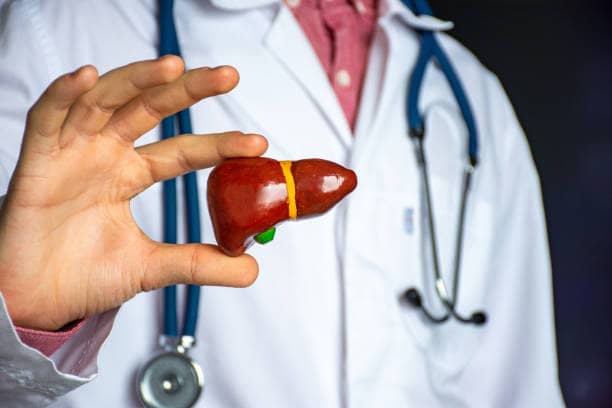What is a Norovirus infection and it’s Treatment: It is commonly referred to as the “stomach flu,” is a highly contagious viral illness that affects millions of people worldwide each year. Characterized by symptoms such as vomiting, diarrhea, nausea, and stomach cramps, norovirus can lead to dehydration and other complications, particularly in vulnerable populations. While there is no specific medication to target the virus itself, effective treatment focuses on managing symptoms and preventing its spread. In this article, we will delve into the various aspects of treating norovirus infection, including prevention, symptom management, and supportive care.
1. Preventive Measures:
The old adage “prevention is better than cure” holds particularly true when it comes to norovirus infection. Taking proactive steps to avoid contracting the virus is paramount. Here are some strategies to consider:

a. Hand Washing: Proper handwashing with soap and water for at least 20 seconds is one of the most effective ways to prevent the spread of norovirus. Alcohol-based hand sanitizers may also be used when soap and water are not readily available.
b. Food Safety: Practicing proper food handling, preparation, and storage is essential. Wash fruits and vegetables thoroughly, cook food to the appropriate temperature, and avoid consuming undercooked shellfish.
c. Clean Surfaces: Disinfect frequently-touched surfaces and objects, especially in areas with known cases of norovirus infection.
d. Personal Hygiene: If you are infected, avoid preparing food for others and interacting with them until you have fully recovered. This helps prevent spreading the virus to others.
e. Isolation: Infected person should avoid preparing food for others and interacting closely with people until at least 48 hours after symptoms appeared. The more you isolate yourself with this virus, the less people gets infected who comes in contact with you in your daily life routine.

f. Disinfection: Surfaces that may be contaminated should be cleaned and disinfected regularly, especially in settings where many people gather everyday like in office, home.
g. Hydrate with Fluid: If infected, it’s important to know that you must drink plenty of water to prevent dehydration caused by vomiting and diarrhea.
2. Symptom Management:
When norovirus strikes, managing its uncomfortable symptoms becomes a priority. While there is no cure for the virus itself, the following measures can help alleviate the effects of the infection:
a. Hydration: Diarrhea and vomiting can lead to dehydration, which can be particularly dangerous, especially in young children and older adults. Drink clear fluids such as water, clear broths, and oral rehydration solutions. Avoid drinks with caffeine or high sugar content.
b. Rest: Resting allows the body to conserve energy and focus on fighting the virus. Adequate rest can also aid in recovery.
c.Balanced Diet: Stick to bland, easy-to-digest foods such as rice, bananas, applesauce, and toast (the “BRAT” diet). As symptoms improve, gradually reintroduce normal foods.
3. Tansmission: Norovirus is highly contagious and can spread easily from person to person. It can also survive on surfaces for an extended period of time, which increases the risk of transmission. Infected person shed the virus in their stool and vomit, making it important to practice proper hygiene, such as frequent handwashing, to prevent its spread to others.
4. Treatment:
Supportive care aims to alleviate discomfort and prevent complications associated with norovirus infection:
a. Medications: Over-the-counter medications can help manage symptoms such as fever, headache, and body aches. Anti-nausea medications may also provide relief.
b. Avoiding Contamination: If you are infected, it’s crucial to avoid contaminating the environment with the virus. Thoroughly clean and disinfect areas where you have vomited or had diarrhea.
c. Fluid Intake: In case of norovirus, drinking clear fluids such as water, oral rehydration solutions, clear broths, and electrolyte drinks can help replace lost fluids and prevent dehydration.
d. Isolation: To prevent the spread of norovirus, consider isolating yourself from others until at least 48 hours after symptoms subside.
e. Seek Medical Attention: While norovirus infection often resolves on its own, certain individuals are at a higher risk of severe complications. If symptoms are severe, persistent, or if there are underlying health conditions, seek medical attention.
f. Rest: Getting plenty of rest allows the body to recover fast and flight off the infection more effectively with a small period of time.
5. When to Seek Medical Attention:
While most cases of norovirus infection are self-limiting and resolve within a few days, there are instances where medical attention is warranted:
a. Dehydration: If you experience severe dehydration (dry mouth, decreased urine output, dizziness), seek medical help promptly.
b. Blood in Stool or Vomit: The presence of blood in stool or vomit may indicate a more serious condition and requires medical evaluation.
c. Prolonged Symptoms: If symptoms persist beyond a few days or if they worsen, consult a healthcare professional.
d. High-Risk Populations: Infants, the elderly, and individuals with weakened immune systems are more susceptible to severe complications. Medical attention is especially important for these groups.
6. Outbreaks and Impact: Norovirus outbreaks can have a significant impact on various settings, ranging from schools and hospitals to cruise ships and community gatherings. Due to its highly contagious nature, a single infected person can lead to a widespread outbreak. Cruise ships, in particular, have gained notoriety for norovirus outbreaks due to the close quarters and share facilities.
Conclusion:
Norovirus infection can be uncomfortable and distressing, but with proper treatment and care, most individuals can recover without complications. Preventing its spread through good hygiene practices is the first line of defense. If infection occurs, managing symptoms through hydration, rest, and dietary adjustments is key. Supportive care measures can further aid in recovery. While most cases resolve on their own, seeking medical attention is advised if symptoms are severe or prolonged. By following these guidelines, individuals can effectively navigate the challenges posed by norovirus infection and reduce its impact on their health and well-being.








3 thoughts on “What is a Norovirus infection and it’s Treatment?”